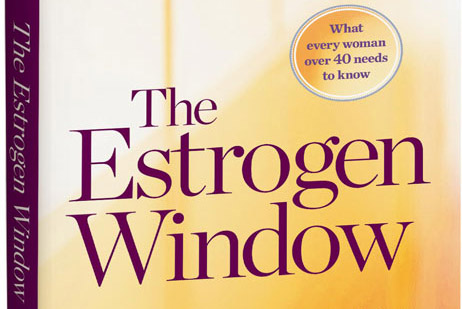When researchers in the Netherlands recently compiled data from 32 studies involving more than 300,000 women, they reached a disturbing conclusion.
Women who experience early menopause – before the age of 45 – face an increased risk for heart disease and premature death.
“This is why women who go into early menopause need to pay special attention to their lifestyle choices and habits,” says Mache Seibel, M.D., a leading American expert on menopause and author of The Estrogen Window (www.EstrogenWindowBook.com).
Those same women also should explore the possibility of taking estrogen, which in addition to its other benefits can help reduce the risk of death from heart disease, he says.
It’s a point worth making any time, but is especially appropriate in October, which is World Menopause Month.
Estrogen therapy, typically used to minimize menopausal symptoms such as hot flashes, irritability and weight gain, has been controversial.
More than a decade ago, the Women’s Health Initiative advised menopausal women to stop using estrogen because of a reported increase in breast cancer, strokes and heart attacks.
Since then, flaws and limitations with the WHI study have come to light, reversing some of the thinking in the medical community.
“Estrogen is safe and beneficial for the majority of women if taken in the estrogen window,” Seibel says. In fact, estrogen, if taken in the estrogen window, can lower the risk of death from heart disease.
The “estrogen window” represents the ideal time to begin estrogen replacement. The window opens the moment a woman enters menopause. Exactly when it closes is more difficult to determine, Seibel says. Generally, it’s a 10-year time frame, but that can vary and women should have ongoing discussions with their physicians, he says.
Heart disease is the leading cause of death for women so it’s critical that they and their doctors understand the role estrogen plays in reducing that risk, Seibel says.
A few facts women need to keep in mind include:
• Age is not the deciding factor. It’s not a woman’s age but rather how many years since she went through menopause that determines whether estrogen will be protective or potentially harmful. “Unfortunately,” Seibel says, “even with the current thinking, some doctors are unaware that estrogen is beneficial in preventing heart disease or simply don’t have enough time to adequately explain this to patients.”
• Women’s symptoms differ from men. When men experience a heart attack, they often have crushing chest pain or radiating pain down the left arm, and sometimes right arm. While women can have those symptoms, Seibel says, they are more likely to feel profound fatigue, lightheadedness, dizziness, nausea and vomiting. They may also notice neck, jaw, back or upper abdominal pain. Women who have persistent symptoms such as those should tell their doctor as soon as possible.
• Overall lifestyle matters. Regardless of whether a woman chooses to take estrogen, Seibel says, maintaining a healthy lifestyle can help reduce the risk of heart disease. Women who smoke should quit because smokers have two to six times the risk of heart attack as non-smokers. They also should exercise regularly, eat a healthy diet, watch their weight and reduce stress.
“The important thing,” Seibel says, “is for women to educate themselves and understand that there are proactive steps they can take to remain physically and mentally healthy and thrive beyond menopause. Time spent on you isn’t lost; it’s invested!”





